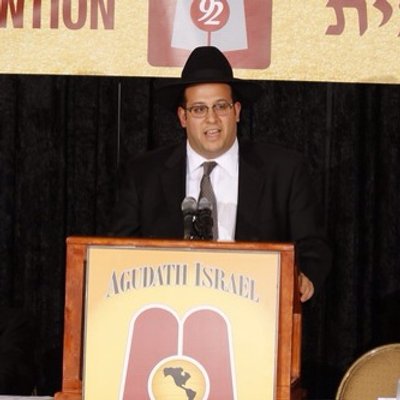It’s been almost a year since November 8, 2016, the day I came into shul a few minutes before Minchah, walked over to my friend Dovid, and asked, “Nu, Dovid, did you vote yet?” His response was expected.
“Nah, I never vote. What’s the point? You think my vote makes a difference either way?”
I looked at Eli, who was sitting right next to Dovid, and asked the same question. His response was similar to Dovid’s, but his reasoning was a bit different: “I don’t vote because I’m not into politics.”
Truth be told, prior to my employment at Agudath Israel, I would have given the same answer as either Dovid or Eli. To many of us, voting is only for those who are into politics. It’s a type. Many of us view politics like spectator sports: some are basketball fans, others hockey, and some follow politics. If you’re not a baseball fan, you don’t follow baseball; if you’re not a politics fan, then you just don’t vote.
Let’s take an honest look at this issue: Does politics have any real impact or consequence on our day-to-day lives, making it more significant than just following another sport? Does it affect us on a practical level?
Just a few months ago, Illinois governor Bruce Rauner signed into law a $100 million tuition scholarship program. Hundreds of families will now be eligible to receive scholarships to pay for their children’s yeshivah tuition. The relief this will bring to so many families is immeasurable. But why did Governor Rauner sign this bill? Why did the legislators and other government officials, who have always been opposed to school choice, support such a program?
The answer is one simple word: politics. My dear friend Rabbi Shlomo Soroka, director of government affairs for Agudath Israel of Illinois, invested hundreds of hours in advocating for this program. He told me that one of the politicians whose support was crucial to getting the law signed confided that he supported the scholarship program because the Orthodox community always backed him and voted for him, and this was his chance to return that support.
Last year, in the state of Maryland, a similar scholarship program, the BOOST program, was enacted. My good friend Rabbi Ariel Sadwin, director of Agudath Israel of Maryland, recently told me that hundreds of yeshivah and Bais Yaakov students are already receiving BOOST scholarships. He showed me letters from parents (with names concealed, of course) describing the financial pressures their families had been facing, which have now been alleviated do to the BOOST program. I asked Rabbi Sadwin what—besides his own herculean efforts—had made this program a reality. His response? Politics. The Orthodox community in Baltimore is a strong voting community, and politicians take note of that. Politicians support communities that support them.
The tuition crisis is something that affects almost every household in our community. We keep asking how long this can be sustained, and if there is a solution. Scholarships, vouchers, and other school choice programs have brought significant relief to many families on the verge of financial collapse.
But many of us look at those living in Cleveland, which has a voucher program, or Chicago, or Baltimore, with envy. We wonder what it would take for our own states to implement scholarship programs or approve tuition vouchers. The answer is that same magical word: politics. We can only succeed if we create a political voice that has influence.
Voting is our voice, and the number of votes is the size of our influence.
So far, I’ve been able to convince Eli that even though he’s not into politics, the ramifications it can have on us are huge, but Dovid still thinks he has a good point. What difference does one vote make? Well, if each of us thinks along those lines, then none of us vote. The strength of a community lies in its individuals working together collectively. If you lose the individuals, you don’t have a community.
We all want to help, but we may not know how. Voting is the vehicle through which every individual can collectively make an impact on matters that are critical to us. Tuition relief is but one example of how politics impacts our communities. So many states are, sadly, starting to create laws allowing euthanasia, some states are contemplating regulating the curriculums we teach in our yeshivos, towns are passing ordinances banning yeshivos, or making it impossible to build shuls.
We need a voice and we need to have influence.
This year Election Day is November 7. Let’s all do our part to make sure our voice is loud and strong. Let’s vote.

Leave a Reply